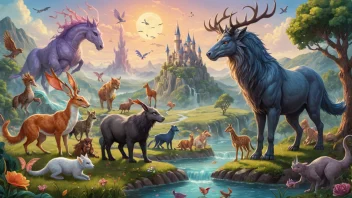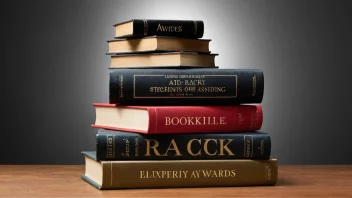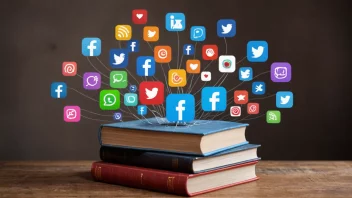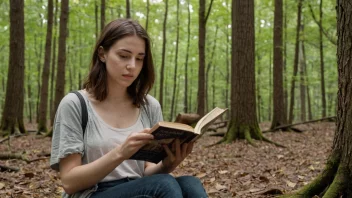In an age inundated with information from various media sources, the ability to think critically has never been more crucial. Non-fiction books, with their grounding in facts and real-world experiences, serve as valuable tools in honing this skill. Through the exploration of various themes, events, and ideas presented in non-fiction literature, readers are provided with the opportunity to engage in deeper analysis, question assumptions, and develop reasoned conclusions. This article delves into how non-fiction books can enhance critical thinking skills, offering insights into their structure, themes, and the nature of their content.
The Importance of Critical Thinking
Critical thinking is the intellectual process of actively analyzing, synthesizing, and evaluating information to guide decision-making and problem-solving. It involves questioning the validity of sources, understanding biases, and recognizing logical fallacies. In a world where misinformation can spread rapidly, the ability to discern credible information from falsehoods is paramount.
How Non-Fiction Literature Facilitates Critical Thinking
Non-fiction books encompass a wide range of genres, including biographies, memoirs, essays, self-help, history, and science. Each of these genres provides unique perspectives that challenge readers to think critically about the world around them.
1. Exposure to Diverse Perspectives
One of the most significant advantages of reading non-fiction is the exposure to a variety of viewpoints. Authors often present their arguments or narratives based on personal experiences, research, or observations, which encourages readers to consider alternative perspectives.
- For instance, reading a political memoir can provide insight into the motivations and decisions of a political figure, prompting readers to analyze their own political beliefs.
- Historical accounts allow readers to understand the complexities of past events, fostering a deeper comprehension of how history shapes contemporary society.
2. Engaging with Complex Ideas
Non-fiction literature often tackles complex subjects, requiring readers to engage with challenging concepts. This engagement promotes intellectual curiosity and critical analysis.
- For example, books on psychology may delve into the nuances of human behavior, prompting readers to question their understanding of social interactions.
- Science-related texts often explain intricate theories or discoveries, encouraging readers to evaluate the evidence and reasoning behind scientific claims.
3. Development of Analytical Skills
Reading non-fiction helps develop analytical skills as it requires readers to assess arguments, identify biases, and evaluate evidence. This process strengthens the ability to think logically and critically.
- Biographies and autobiographies present life stories that can be analyzed in terms of choices, consequences, and moral dilemmas, providing rich ground for discussion.
- Essays often present a thesis supported by evidence, encouraging readers to dissect the author's reasoning and form their own conclusions.
Genres of Non-Fiction That Enhance Critical Thinking
While all non-fiction has the potential to enhance critical thinking, certain genres particularly stand out due to their inherent characteristics.
1. Biographies and Memoirs
Biographies and memoirs offer intimate glimpses into individuals’ lives, often highlighting pivotal moments of decision-making. This genre encourages readers to evaluate the motivations and consequences of the subjects' actions.
2. Essays and Articles
Essays, especially those written by prominent thinkers, present arguments on various topics. Readers can engage critically with these pieces by questioning the author's assertions and considering counterarguments.
3. Historical Accounts
History books not only recount events but also analyze the causes and effects of those events. This genre encourages readers to think critically about the implications of historical narratives.
4. Science and Nature Writing
Science writing often involves the presentation of complex ideas in an accessible manner. Readers are encouraged to analyze data, question methodologies, and explore the implications of scientific findings.
Strategies for Engaging with Non-Fiction to Enhance Critical Thinking
To maximize the benefits of non-fiction reading, consider implementing the following strategies:
1. Annotate While Reading
Take notes, highlight passages, and jot down questions while reading. This practice encourages active engagement with the text and aids in retention of information.
2. Discuss with Others
Join a book club or engage in discussions with friends about the non-fiction books you read. Sharing insights and differing opinions can deepen understanding and promote critical discourse.
3. Reflect on Personal Biases
As you read, consider your own biases and how they might influence your interpretation of the material. Recognizing these biases is a crucial step toward critical thinking.
4. Apply the Knowledge
Try to apply the insights gained from non-fiction to real-world situations. This application not only reinforces learning but also encourages further questioning and exploration.
Conclusion
Non-fiction books serve as powerful tools for enhancing critical thinking skills by exposing readers to diverse perspectives, engaging them with complex ideas, and fostering analytical abilities. By delving into various genres of non-fiction, readers can develop a deeper understanding of the world and improve their ability to think critically. Whether through biographies, essays, or historical accounts, the insights gained from non-fiction literature can significantly contribute to informed decision-making and a more nuanced worldview. In an era where critical thinking is essential, the role of non-fiction in shaping our thought processes cannot be overstated.






